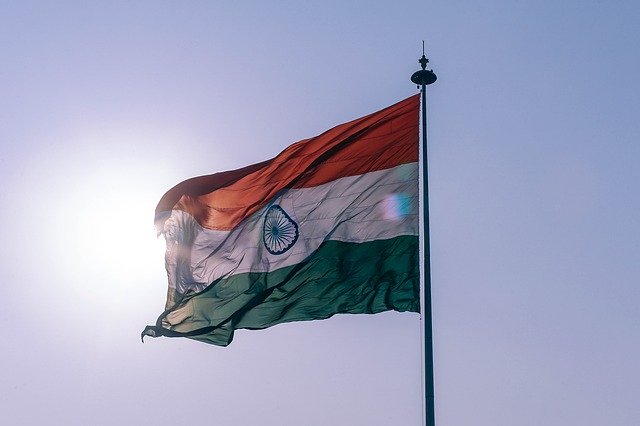By J.M. Phelps (One News Now)
A high-ranking officer of the Indian Army and editor of a peer-reviewed quarterly military journal backs India’s parliamentary decision to prevent some immigrants from entering the country, while others can still seek citizenship under the law.
Lt. Gen. (Dr.) J.S. Bajwa is a retired Director General of Infantry in the Indian Army and the current editor of Indian Defence Review. He explains to OneNewsNow that India once comprised the three countries known today as Pakistan, India, and Bangladesh. While the region has since been divided into these three countries by an earlier British rule, prior to 1947, India was virtually the entire Indian subcontinent. Bajwa says “both [Pakistan and Bangladesh] have adopted Islam as their State Religion,” adding that neighboring Afghanistan is also an Islamic country.
Recent decades, according to the retired lieutenant general, have seen “a systemic persecution of the minority communities in these countries, resulting in persons of those minority communities seeking refuge in India.” The minority communities generally include Hindus and Sikhs, but also include other communities like Buddhists and Christians.
On December 11, 2019, India’s Parliament passed the Citizenship Amendment Act (CAA), which has had a direct bearing on Jammu and Kashmir. Vocal opponents of the CAA, including Pakistan’s Prime Minister Imran Khan, insist the CAA is “couched in the language of refuge and seemingly directed at foreigners, but its main purpose is the delegitimisation of Muslims’ citizenship.” Massive protests, violence, and the incitement of jihad have swept across India following the passage of the bill, resulting in nearly two dozen deaths so far.
The former infantry officer tells OneNewsNow that the CAA legislation only applies to those who were “forced or compelled to seek shelter in India due to persecution on the ground of religion”; and that it serves “to protect such people from proceedings of illegal immigration.” The Citizenship Act has been amended six times with the latest being in 2019.
“The cut-off date for citizenship under the amendment was December 31, 2014 – [and] the applicant should have entered India on or before that date,” Bajwa adds. “[But] the Act is being interpreted superficially by various opposition parties and religious groups to suit their political interests.”
He then emphasizes: “No Muslim who has been a citizen of India is affected [by the amendment] nor is his citizenship put to question.”
The CAA does not apply to Hindus or Muslims persecuted in Myanmar, or Christians and Tamil Hindus persecuted in Sri Lanka. Bajwa also notes the CAA particularly does not apply to Muslims coming from Pakistan, Bangladesh, and Afghanistan as “a persecuted minority,” because they are part of the majority community in these countries.
The former Army chief deems it important to point out that Pakistan is “waging a war against its own people” in Baluchistan, Khyber Pakhtunkhwa and the Gilgit-Baltistan region of Pakistan Occupied Kashmir. And as a result, he says, “Muslim refugees from these areas are taking refuge in India and can seek citizenship under the Naturalization clause as it exists.”
Pakistan has been the most vocal in criticizing the Act, Bajwa notes. “It is utterly ludicrous that the very country which has been persecuting and continues to persecute its religious minorities can, with such a straight face, even comment on this Act,” he declares.
PM Khan has not only contributed to the volatile circumstances of the Jammu and Kashmir region, but he has gone as far as threatening a nuclear war over the CAA. Bajwa questions the absurdity of Khan’s rhetoric.
“Is this dimwitted prime minister saying that there will be a mass migration of Indian Muslims from India to Pakistan?” he wonders. “In the 72 years since India’s independence there is no case of an Indian Muslim seeking asylum or refuge in Pakistan.”
Despite the growing number of protests and increasing threats of violence, the recent amendment of India’s Citizens Amendment Act was passed by an overwhelming majority in both Houses of Parliament.
“Voting has been done on behalf of the people of India by their honorable representatives,” Bajwa explains. “To now take to the streets and protest against the law is making a mockery of India’s parliamentary system.”
J.M. Phelps is a Christian activist and journalist based in the Southeastern U.S. He is also editor and publisher of the website Lantern of Liberty.
Originally published by One News Now on Friday, December 27, 2019. With permission, this article was re-published at Indian Defence Review.
This column is printed with permission. Opinions expressed in columns published by Lantern of Liberty are the sole responsibility of the article’s author(s), or of the person(s) or organization(s) quoted therein, and do not necessarily represent those of the staff or management of, or advertisers who support Lantern of Liberty.






